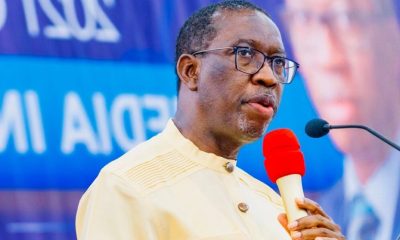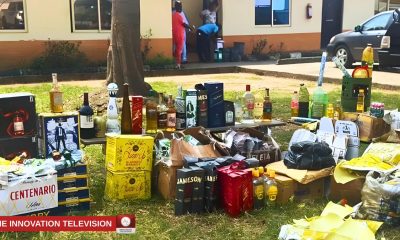The Federal Government of Nigeria has allocated approximately N8.8 billion to restore damaged transmission towers nationwide, following an alarming wave of vandalism that has crippled power infrastructure.
This was revealed by Mr. Sule Abdulaziz, Managing Director of the Transmission Company of Nigeria (TCN), during the Quarterly Power Sector Working Group meeting held in Abuja.
Abdulaziz, represented by Mr. Olugbenga Ajiboye, Executive Director of Transmission Service Provider, highlighted the immense financial and operational strain on the power sector.
Since January 2024, 128 transmission towers have been destroyed by vandals and bandits. Abdulaziz lamented the recurrent damage, citing legal loopholes as a key challenge in deterring such acts.
“Each time the vandals are caught and taken to the police, they are charged for theft instead of vandalism, which allows them to secure bail. If they were charged under vandalism laws, bail would not be an option,” Abdulaziz stated.
Restoration efforts have been further hindered by security threats in certain regions, forcing TCN to rely on military escorts for contractors.
Abdulaziz cited the Shiroro-Mando-Kaduna line as an example, where safety concerns delayed work.
“In some cases, we were advised not to proceed due to the security situation. How can we deliver electricity under these circumstances?” he asked, emphasizing the difficulty of achieving uninterrupted power supply in the current environment.
In his remarks, Mr. Adebayo Adelabu, Minister of Power, represented by Mr. Adedayo Olowoniyi, Chief Technical Adviser, announced a collaborative project with the World Bank and the African Development Bank (AfDB) to enhance electricity access across Africa.
READ ALSO: House of Reps pushes N500bn recapitalization for DisCos to tackle electricity crisis
“The initiative aims to provide electricity to 300 million Africans, including 50 million Nigerians by 2030,” Adelabu revealed.
This project, set to involve both public and private sector players, will employ a combination of solar home systems, mini-grids, and grid extensions to serve underserved areas. A formal agreement is expected to be signed by President Bola Tinubu in Tanzania in January 2025.
Energy experts have raised concerns over the economic and social ramifications of persistent vandalism.
Dr. Adeola Akintoye, an energy consultant, noted that the estimated N8.8 billion spent on repairs could have been used for expanding the grid or upgrading existing infrastructure.
“The current situation not only strains the government’s resources but also delays progress in achieving Nigeria’s energy transition goals,” Akintoye stated.
Similarly, Prof. Chijioke Nwankwo, a power systems analyst, argued for stricter enforcement of anti-vandalism laws to deter criminal activities.
“Legal reforms are essential to treat infrastructure sabotage as a national security issue. Without this, the cycle of destruction and repair will persist,” Nwankwo emphasized.
Despite the challenges, Adelabu reaffirmed the government’s commitment to providing electricity as a fundamental right for all Nigerians, describing it as a “dividend of democracy.”
“While extending the grid to every part of the country may not be immediately viable due to funding constraints, alternative solutions are being pursued to ensure no community is left behind,” Adelabu said.

 Football7 days ago
Football7 days ago
 News6 days ago
News6 days ago
 Comments and Issues1 week ago
Comments and Issues1 week ago
 Comments and Issues1 week ago
Comments and Issues1 week ago
 Comments and Issues1 week ago
Comments and Issues1 week ago
 Latest1 week ago
Latest1 week ago
 Comments and Issues1 week ago
Comments and Issues1 week ago
 Health7 days ago
Health7 days ago

